
A Green Partner for the Environment
ESG
Climate and Sustainability Action
Extreme weather events have frequently occurred in recent years, and high temperatures repeatedly exceeded historical records in 2023. The 28th UN Climate Change Conference (COP28) emphasized that the implementation of net zero commitments requires immediate action, because we are just one step away from the limit on 1.5° C temperature rise in the Paris Agreement. In Taiwan, at the beginning of 2023, the Climate Change Response Act was amended to include the goal of net-zero emission by 2050 and to strengthen the governance direction on climate change adaptation and GHG reduction in Taiwan. Additionally, local and foreign investors and stakeholders are concerned about the impacts of climate change on businesses, as well as the risks and opportunities associated with corporate measures to tackle climate change. Climate change has become an essential factor in management for any organization. To mitigate the potential impacts of climate change on our business, since 2021, PChome has applied the Task Force on Climate-related Financial Disclosures (TCFD) created by the Financial Stability Board (FSB) and developed a climate information framework structured around the four major aspects of the TCFD. We also invite various entities to identify PChome’s climate change-related risks and opportunities, to develop response measures and management goals based on the outcomes.
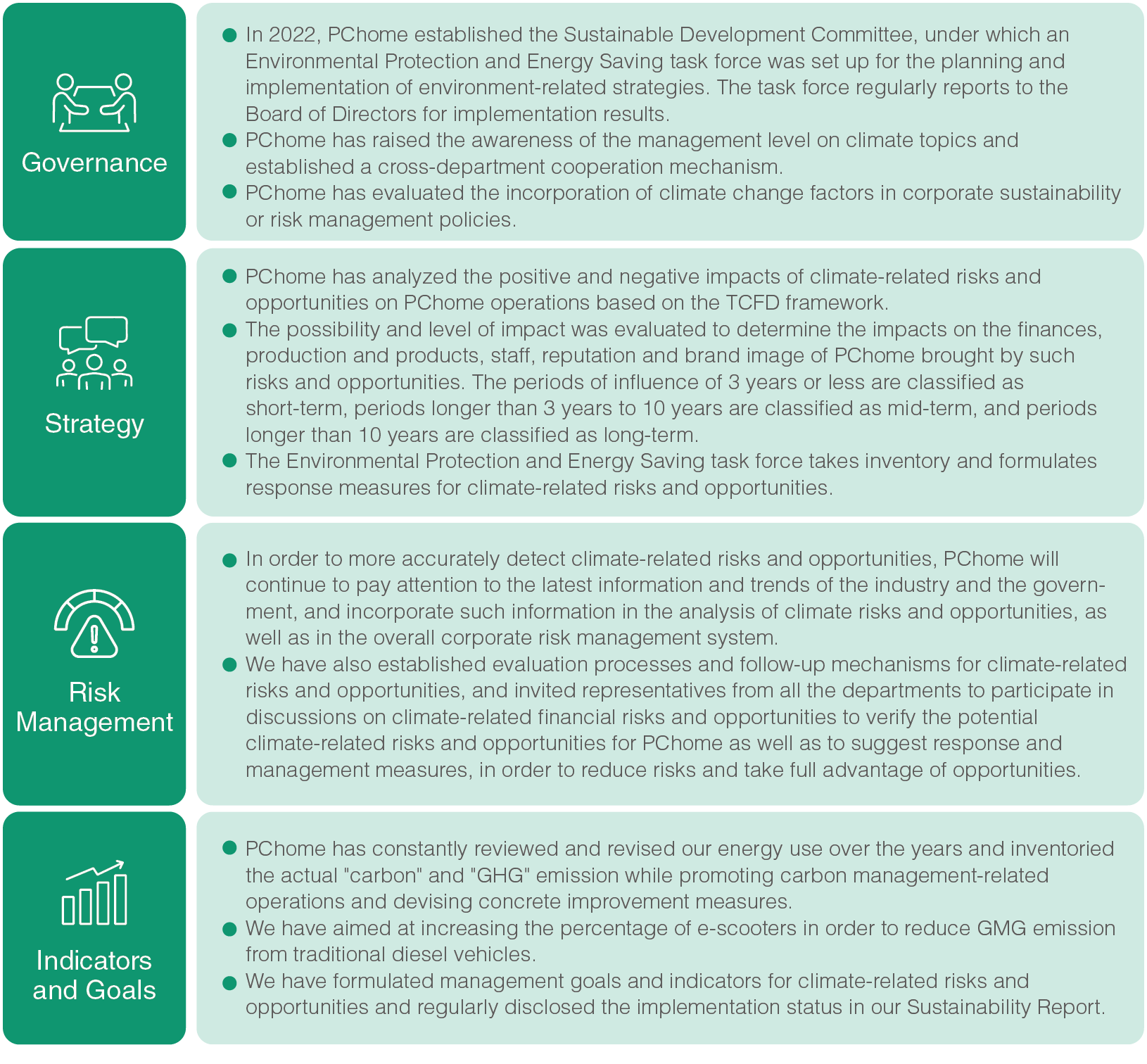
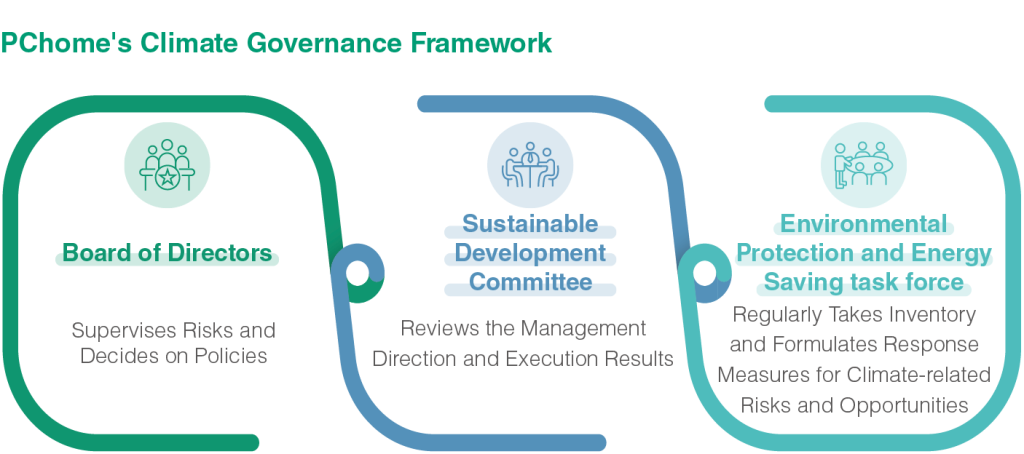
With the support of our executives and participation from all departments, we have jointly identified climate change-related physical risks and the transition risks and opportunities that are most relevant to our operations through discussions, and assess their potential financial impact on PChome. In response to international and industry trends, the two transition risks of pricing of GHG emissions and changes in customer behavior have been added to the identification of topics along with explanations on relevant impacts and management and response for each risk and opportunity. The identification results showed that risks and opportunities that can cause short-term (0-3 years) impacts include: Increased severity of extreme weather events, such as typhoons and floods, changes in customer behavior, rising cost of raw materials, and developing low carbon products and services. Risks and opportunities that can cause mid-term (3-10 years) impacts include: Changes in precipitation patterns and extreme changes in climate patterns, increases in pricing of GHG emissions, using more efficient production and distribution processes, and developing circular economy. Risks and opportunities that can cause long-term (>10 years) impacts include: Increasing stakeholder concerns and negative feedback, and establishment of sustainable supply chains. Going forward, we will continue our efforts in implementing action plans to mitigate the impact of climate change on our business performance and financial position, and seize opportunities for growth brought by climate change.

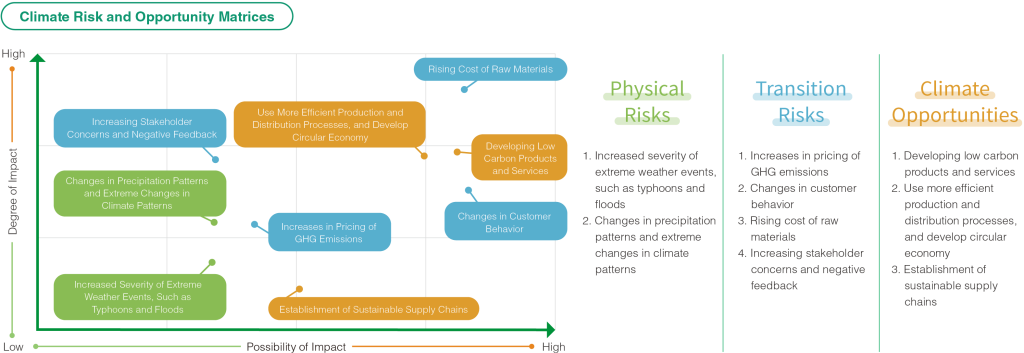
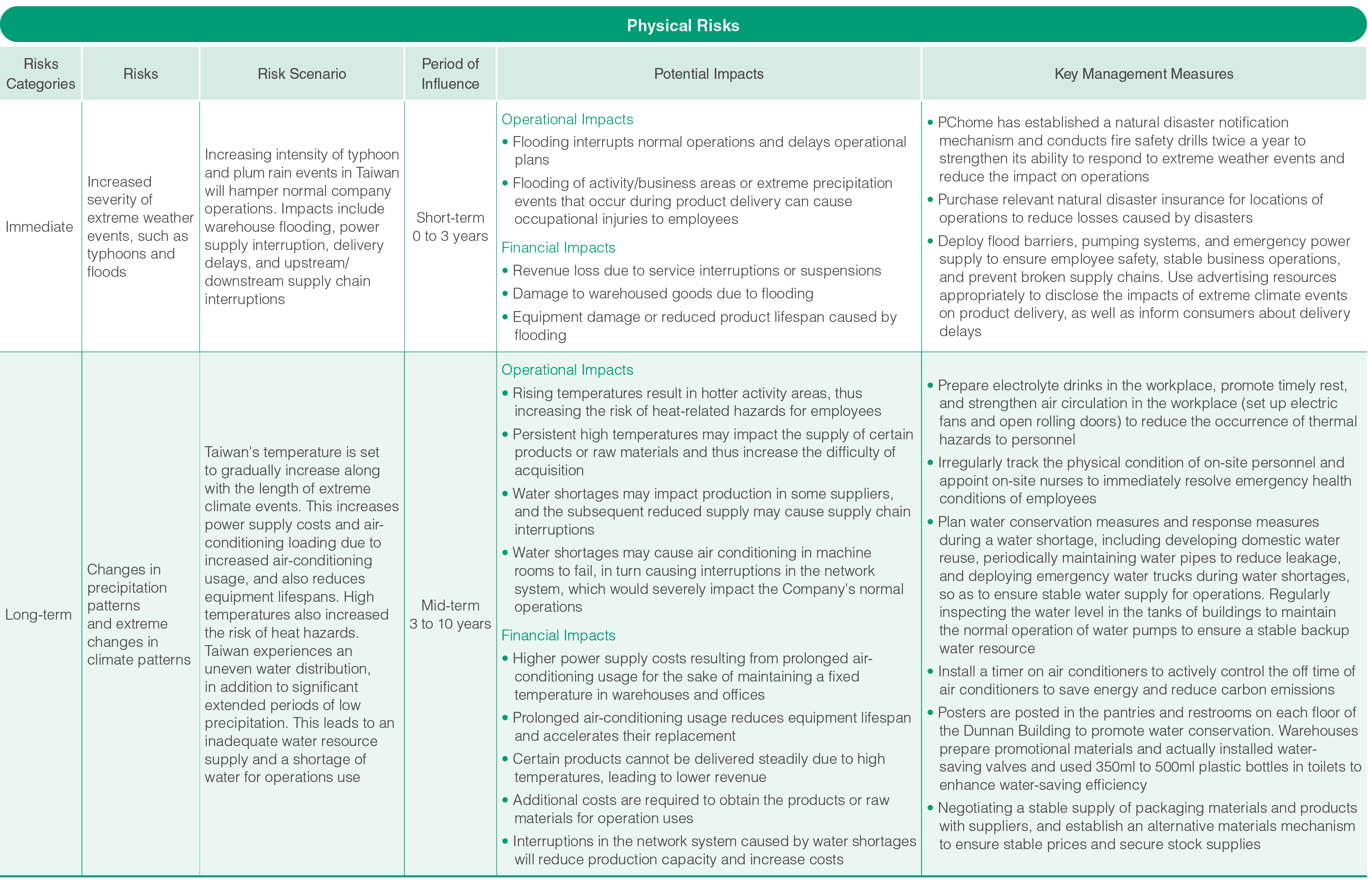
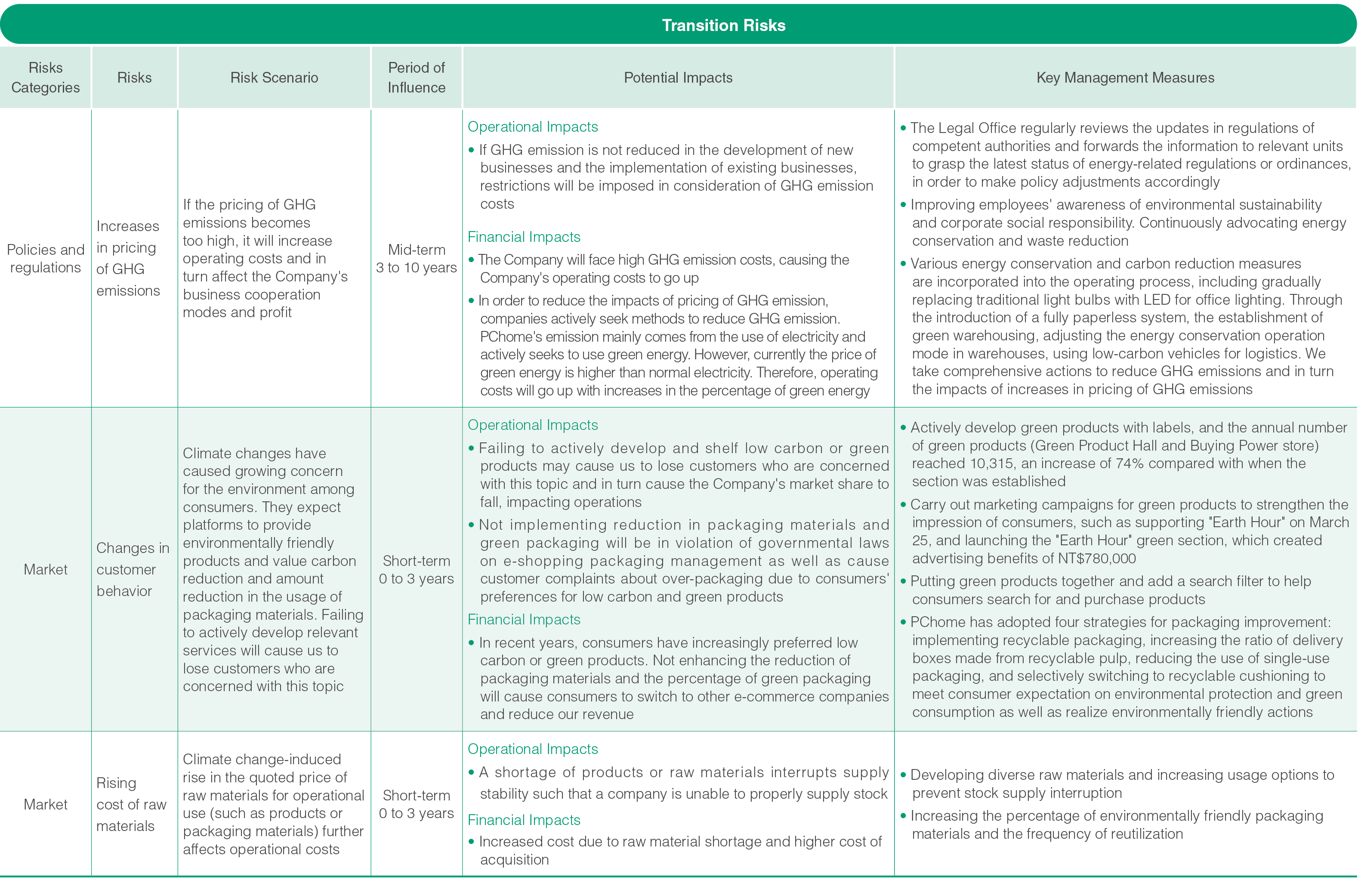
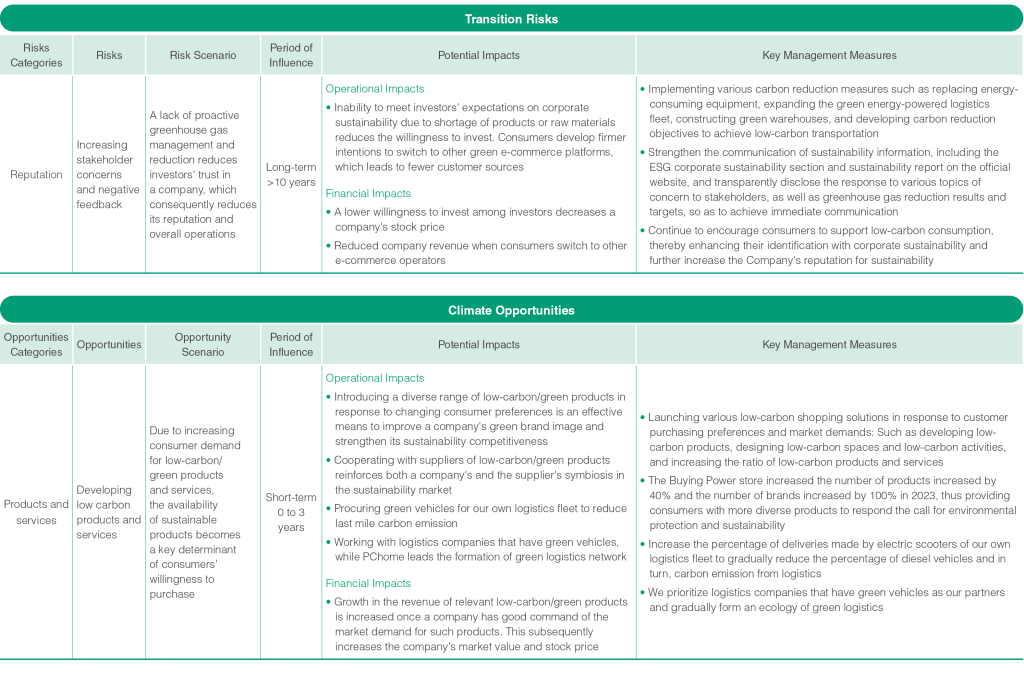



.jpg)